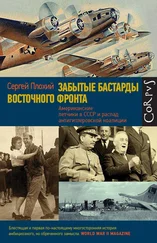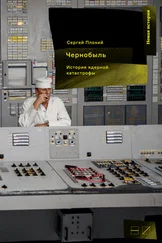On the morning of February 25, 1986, Viktor Briukhanov and his fellow deputies took their seats in the Kremlin Palace of Congresses in the center of the hall before the podium. For those like Briukhanov who were attending their first party congress, the ritual opening presented an interesting spectacle whose main features went back to Stalin’s times.
At ten in the morning, the party’s Politburo members, led by Mikhail Gorbachev, marched to the podium. Like most people, Briukhanov knew them from their portraits, which were displayed on public buildings all over the Soviet Union. Among them was the head of the KGB, Viktor Chebrikov, whose portrait would survive for decades in the Prypiat palace of culture. Like everyone else, Briukhanov rose to his feet to welcome the leaders with applause. Once it subsided, Gorbachev made his way to the podium. “Comrade delegates,” declared the general secretary, his voice betraying his excitement. “At Communist Party congresses of Union republics and territorial and oblast party conferences, 5,000 delegates were chosen to attend the 27th congress of the Communist Party of the Soviet Union [CPSU]. There are 4,993 delegates attending the congress. Seven people are absent for valid reasons. This gives us a basis to commence the work of the congress.” There were no objections. The congress began its proceedings. 10
Among the first items on the agenda was paying tribute to those who had passed away since the previous congress in 1981—six elderly members of the Politburo, including three general secretaries: Brezhnev, Andropov, and Chernenko. With the deceased duly honored, the way was clear for a new start—Gorbachev’s political report to the congress. With lunch and coffee breaks, it lasted the rest of the day. A team of professional announcers took six hours to read it on Soviet radio afterward. Gorbachev almost equaled the new record for communist speeches established earlier that month by Fidel Castro, who had reported to the congress of the Communist Party of Cuba for seven hours and ten minutes. Now seated in the guest row behind the general secretary, Castro listened carefully to the translation of Gorbachev’s speech. It turned out to be the most critical address delivered by a Soviet leader since the end of the Stalin era. 11
“For a number of years, not only because of objective factors but above all for subjective reasons, the activity of party and state bodies has fallen behind the demands of the time, of life itself,” declared the general secretary. “Problems in the development of the country accumulated more quickly than they were solved. Inertia and stagnation in forms and methods of administration, decreasing dynamism in work, the growth of bureaucratism—all this made for considerable detriment to the cause. Elements of stagnation became apparent in the life of society.” Such a critique of Soviet reality and the senior leadership had not been heard since Nikita Khrushchev’s “secret” speech to the Twentieth Party Congress in February 1956. Gorbachev later noted that the 1956 congress and the current one had begun on the same calendar day, February 25. The word that he used for “stagnation,” zastoi , would become the accepted term for the decline in Soviet economic development of the late 1970s and early 1980s.
Gorbachev wanted the party “to overcome negative aspects of socioeconomic development as quickly as possible, to impart the necessary dynamism and acceleration to that process, to learn the lessons of the past to the maximum.” He set ambitious tasks for the Soviet economy and society—in fifteen years, before the end of the millennium, gross domestic product (GDP) was to be doubled by dramatically increasing the productivity of labor. He staked the achievement of that task on the scientific and technological revolution, including the introduction of new technologies, and a shift from fossil fuels, especially coal, oil, and gas, toward nuclear energy. “In the current five-year plan,” declared Gorbachev, “atomic energy stations two and a half times more powerful than those in the previous plan will come online, and obsolete units at thermoelectric power stations will be replaced en masse.”
Briukhanov knew the figures—they were part of the government energy program that had been prepared and announced before the congress. But now the party had given the program a ringing public endorsement. In five years, the next party congress would review the results, and the party leadership would punish those it held responsible for failing to achieve the projected result, should that become necessary. This meant that not only would the existing four units of the Chernobyl power plant have to fulfill and overfulfill their quotas, but the new fifth and sixth units would also have to be completed and connected to the electric grid. There were also plans to build two and then an additional four reactors on the other bank of the Prypiat River. The production capacity of these new units would significantly exceed that of the old ones, producing 1.5 million megawatts of electrical energy per unit instead of 1 million. After fifteen years of juggling the tasks involved in building the plant and running it at the same time, Briukhanov felt exhausted, but the party demanded more nuclear energy, and he served at the party’s pleasure.
In his report, Gorbachev paid much more attention to nuclear arms than to nuclear energy. He called on his comrades to think about new approaches to arms control, pointing out that the nuclear arms already accumulated by the opposing military blocs, the North Atlantic Treaty Organization (NATO) and the Moscow-led Warsaw Pact, threatened to destroy life on earth many times over. His proposed solution was a program that would eliminate all nuclear weapons before the end of the century. Now he reported to the congress that he had received President Reagan’s response to his initiative. Gorbachev considered it largely negative. Reagan supported the destruction of nuclear arms in principle but insisted on maintaining his Strategic Defense Initiative (SDI), a project dubbed “Star Wars” because of its focus on the construction of a space-based antimissile system. “The reduction of strategic nuclear arsenals is predicated on our agreement to the ‘Star Wars’ programs and the reduction—unilateral, by the way—of Soviet conventional armaments,” Gorbachev told the deputies of Reagan’s response, not without bitterness and disappointment. 12
The Soviet leader knew that his country had neither the resources nor the technology to match SDI, which was still in the design stage but, if realized, would mean another round of the arms race that the Soviet Union could not afford. He needed the money and technical expertise that were being used by the designers of missiles and nuclear arms to modernize the lagging Soviet economy. The scientific establishment was on his side in principle. What its members wanted was more money and continuing reliance on domestic know-how, even if what they had to offer was more expensive and inferior to the technologies and equipment available on Western markets. The continuing Cold War, which led the West to impose embargoes on the sale of advanced technologies to the Soviet Union, lent weight to their argument. The government-funded military-industrial complex was eager to move into the economic sphere while maintaining its monopoly on high-tech industries and products. Many, including Gorbachev, saw this as the most effective solution to the country’s economic troubles.
The desires, fears, and aspirations of the Soviet military-industrial complex and its scientific wing were articulated to the congress by Anatolii Aleksandrov, the president of the Soviet Academy of Sciences. The fact that he was the first representative of the Soviet intelligentsia to address the congress underscored the symbolic importance of his position in the party hierarchy as well as the hopes that the new leaders were now placing in the scientific establishment. 13
Читать дальше
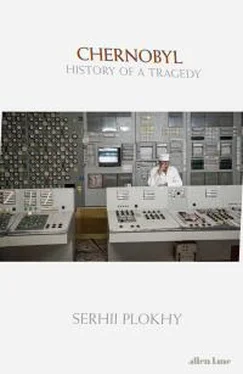

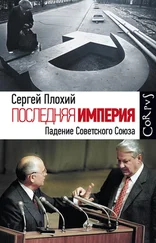



![Сергей Плохий - Чернобыль - История ядерной катастрофы [litres]](/books/385171/sergej-plohij-chernobyl-istoriya-yadernoj-katastrof-thumb.webp)
![Сергей Плохий - Человек, стрелявший ядом [История одного шпиона времен холодной войны]](/books/405163/sergej-plohij-chelovek-strelyavshij-yadom-istoriya-od-thumb.webp)

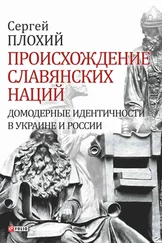
![Сергей Плохий - Потерянное царство. Поход за имперским идеалом и сотворение русской нации [c 1470 года до наших дней]](/books/433093/sergej-plohij-poteryannoe-carstvo-pohod-za-impersk-thumb.webp)
